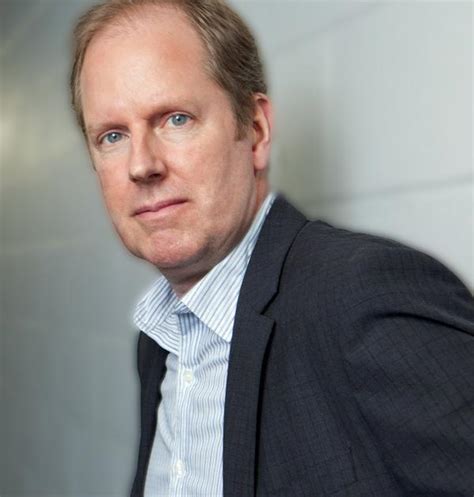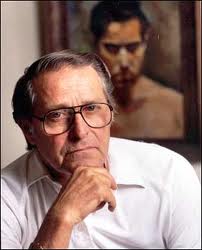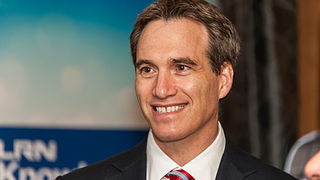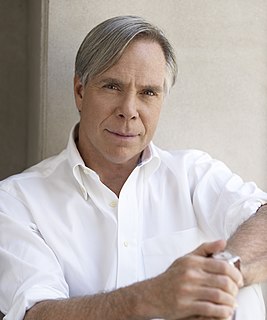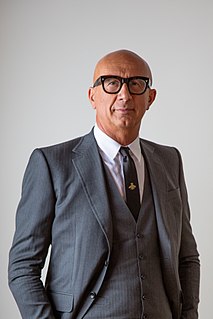Top 299 Innovate Quotes & Sayings - Page 5
Explore popular Innovate quotes.
Last updated on December 19, 2024.
A beautiful question shifts the way we think about something and often sets in motion a process than can result in change. Entrepreneurs-o r at least the successful ones-do a great job asking beautiful questions. They almost have no choice -their whole reason for being is to disrupt, innovate, solve a problem no one else is solving.
"Why is the creative entrepreneur the riskiest type to be?" I asked. "Because being creative means you are often a pioneer. It is easy to copy a successful and proven product. It is also less risky. If you learn to innovate, create, or invent your way to success, you are an entrepreneur creating new value rather than an entrepreneur who wins by copying."
We don't think a sustainable society need be stagnant, boring, uniform, or rigid. It need not be, and probably could not be, centrally controlled or authoritarian. It could be a world that has the time, the resources, and the will to correct its mistakes, to innovate, to preserve the fertility of its planetary ecosystems. It could focus on mindfully increasing quality of life rather than on mindlessly expanding material consumption and the physical capital stock.
You want to be the first to do something. You want to create something. You want to innovate something...I often think of Edison inventing the light bulb. That's what I want to do. I want to drive over the bridge coming out of New York there and look down on that sea of lights that is New Jersey and say, `Hey, I did that!'
For all great innovations, someone took a risk. They risked capital; they risked their energy; they risked their opportunity cost; and more important, they risked failure. We can't innovate without the belief that we can succeed, the confidence that others will be there to help us on the journey, and the security that we will not be punished if we fail to reach our goal. A fast-moving world demands innovation for long-term success.
My approach is not a scientific approach. For that, we have greater minds than mine. My approach is: I am in the possession of a text, it has survived so many centuries, and it is my task, my pleasure, to try to decipher it and find all the things that have been said about these few words by generations and generations of commentators. That is what I'm doing. I don't innovate anything. I'm just repeating.
Production for sale in a market in which the object is to realize the maximum profit is the essential feature of a capitalist world-economy. In such a system production is constantly expanded as long as further production is profitable, and men constantly innovate new ways of producing things that will expand the profit margin.
When you advance a frontier, you're doing something that no one has done before. Every time that happens, you have to innovate. You have to think in new ways that hadn't been thought before. You have to invent a new piece of hardware, a new concept, a new law of physics, a new material, a new construction material to enable you to accomplish what it is that you chose to reach for by dreaming about tomorrow.
We tend to think that, in a traditional organisation, people are producing results because management wants results, but the essence of a high-quality organisation is people producing results because they want the results. It's puzzling we find that hard to understand, that if people are really enjoying, they'll innovate, they'll take risks, they'll have trust with one another because they are really committed to what they're doing and it's fun
There are companies that are good at improving what they're already doing. There are companies that are good at extending what they're doing. And finally there are companies that are good at innovation. Every large company has to be able to do all three - improve, extend, and innovate - simultaneously.
I wanna be remembered for my hard work that I've done for over 25 years. Winning championships, making money, being a star, all the luxurious things...they don't count. What counts is being able to open up a path for the new generation to come in and continue to innovate and evolve. I'm just very happy to be a pioneer.
Whether through the introduction of a Universal Basic Income, or through developing ways to ensure that the self-employed, entrepreneurs and fledgling start-up companies have the support they need to take chances and innovate, the £500bn investment programme proposed by Corbyn responds to the challenges we will inevitably have to face.
The truth is that business is simple: create great products, merchandise them at the point of sale, continuously innovate and surprise, reward and achieve a position of loyalty with your front line, and seek new truth from the market. Deliver the goods at a competitive cost. Price to earn a decent but not competitively inviting return. Not much else matters.
I recall a conversation with the CEO of large electrical equipment MNC in which he began by asking me to guess how many innovation centres his firm had around the world. My guess was nowhere near the 160 that turned out to be the answer. Not surprisingly this CEO recognized that his firm's ability to innovate was being hampered by the huge size of their footprint which brought few benefits as it was inefficient, there was duplication across sites and competition between them. In this and most other cases, the costs of the expanded footprint outweigh the benefits.
When Americans are called on to innovate, that's what we do - whether it's making more fuel-efficient cars or more fuel-efficient appliances, or making sure that we are putting in place the kinds of equipment that prevents harm to the ozone layer and eliminates acid rain. At every one of these steps, there have been folks who have said it can't be done. There have been naysayers who said this is going to destroy jobs and destroy industry. And it doesn't happen because once we have a clear target to meet, we typically meet it. And we find the best ways to do it.
Ontario's auto sector is a cornerstone of our economy - a key source of our ability to export, innovate and create jobs. In this highly competitive global economy, we need to drive further investment and ensure the sector remains strong. I am confident that this new partnership, with Ray Tanguay's strategic advice and leadership, will allow Ontario to increase our competitiveness, productivity, and market share in the auto sector, and I look forward to their important work contributing to a more prosperous, innovative Ontario economy.
I am convinced that an electronic machine, no matter how smart and intelligent, being still a mere spatial structure in concept, can neither innovate nor even understand the self-evident proposition: 'No spatial structure can be a representation of any feeling'. Such innovation can only be a work of a non-spatial mind, like a human being, and only such innovation, it should be acknowledged, can pave the way for further scientific achievements.
I don't think generally speaking, there are a lot of innovators and inventors. Many of the designers take what exists already and update it or make it relevant for today. But true inventors have never been seen before. Bill Gates is a real inventor. I don't think fashion designers invent anything new. They innovate new ways to make fashion.
If you want to play the game and win, you've got to play 'full out.' You've got to be willing to feel stupid, and you've got to be willing to try things that might not work - and if they don't work, be willing to change your approach. Otherwise, how could you innovate, how could you grow, how could you discovery who you really are?
Tech companies like to set stretch goals, like we'll try to be the best company for women and minorities, and we have to ask, "What does that really mean?" By setting a goal like that, it makes all of us pay attention to that idea and try to innovate around it, to understand the underpinnings. One piece is being transparent, saying "Hey, we have an issue, we're open to innovation on it." It's important for innovation to prove that more diversity makes better products.
A lot of Americans desperately want to believe that China is full of poor people who can't innovate, and the only goods they make are cheap, toxic rip-offs our Western brands. They want to believe the only reason the Chinese economy is surging is because the West wants cheap goods and China knows how to make them that way.
In Dublin, we open The Dock, our new multidisciplinary innovation R&D and incubation hub where all elements of our innovation architecture come to life. The Dock is a launch pad for our more than 200 researchers to innovate with clients and acquisition partners with a particular focus on artificial intelligence.
Risk is more than is required. Learn more than is normal. Be strong. Show courage. Breathe. Excel. Love. Lead. Speak your truth. Live your values. Laugh. Cry. Innovate. Simplify. Adore mastery. Release mediocrity. Aim for genius. Stay humble. Be kinder than expected. Deliver more than is needed. Exude passion. Shatter your limits. Transcend your fears. Inspire others by your bigness. Dream big but start small. Act now. Don't stop. Change the world.
There will be increasing temptation to watch movies where you want to when you want to, and so I'm very focused on how we innovate Illumination Entertainment to keep the in-theater experience vibrant and urgent. In part I think it's what movies you're choosing to make and why those are films we feel are best enjoyed surrounded by a group of people. I also think it's continuing to look at things technologically.
I look forward to working closely with the Research Councils, Innovate UK, and Higher Education Funding Council for England (HEFCE), as we work together to create UKRI. I also look forward to working closely with all of our research and innovation communities to provide a strong and coherent voice for U.K. science and innovation.
I've always been passionate about technology. Starting tech businesses was a very natural extension. Thus, keeping up to date with latest trends is not a process driven activity for me. If one wants to innovate or even survive in today's competitive world, one must keep abreast of emerging new technologies.
It's fascinating as we continue to innovate and lead the way in both the application space and the database space. In the very beginning, people said you couldn't make relational databases fast enough to be commercially viable. I thought we could, and we were the first to do it. But we took tremendous abuse until IBM said, "Oh yeah, this stuff is good."
A miracle worker who can do more with less, pacify rival groups, endure chronic second guessing, tolerate low levels of support, process large volumes of paper, and work double shifts. He or she will have carte blanche to innovate, but cannot spend much money, replace any personnel, or upset any constituency.
More and more, leadership, whether it's profit or nonprofit, is about recruiting and keeping talented people. That's the biggest challenge. Yes, you've got to create systems that will enable people easily to innovate continuously; you've got to be a system-builder. But finding and keeping geeks and shrinks is the biggest challenge. That means leaders have got to be salespeople, they've got to be recruiters, and they've got to be actively able to understand and keep the talent they have. Leadership is courtship. That's what it's becoming.
Education is the key to the future: You've heard it a million times, and it's not wrong. Educated people have higher wages and lower unemployment rates, and better-educated countries grow faster and innovate more than other countries. But going to college is not enough. You also have to study the right subjects.
You go ask any founder of any company why he or she did it, you will never hear, "I wanted to create jobs for the community" as the number one, number two, number three, number four, number five, number 10 reason for doing so. That is a result of the success the business enjoys. Creating jobs is not why people start businesses. Creating jobs is not how people innovate in business. It's not how they compete.
The only hope I had was when (in his youth)I saw one day a photograph of a sculpture by Wilhelm Lehmbruck, a German sculptor of expressionistic style. This was perhaps the only example, Lehmbruck, between my sixteenth to nineteenth years in which I saw a possibility for art to be principally of interest to innovate some things, instead of writing a very boring, naturalistic repetition of what is already done by nature.
Liberalism is the philosophy for our time, because it does not try to conserve every tradition of the past, because it does not apply to new problems the old doctrinaire solutions, because it is prepared to experiment and innovate and because it knows that the past is less important than the future.
In 2008 we suffered an economic catastrophe, and the rules of the game fundamentally changed forever. A few years ago, you might hear a leader talking about doing things "the way we've always done it." No more. Today, nearly every industry is in the midst of massive upheaval. Today, we live in a world of dizzying speed, exponential complexity, and ruthless competition. Leaders today realize they need to innovate, and their chief concerns now focus on fostering creative and innovation within their organizations.
When we launched If WeRanTheWorld, I said to my team, I want us to innovate in every aspect of how we design and operate this as a business venture, as much as the web platform itself - because I want us to design our own startup around the working lives that we would all like to live. Women and men alike.
Despite its self-regard, and much like a society of devout followers, the art world relies on consensus as heavily as it depends on individual analysis or critical thinking. Althought the art world reveres the unconventional, it is rife with conformity. Artists make works that "looks like art" and behave in ways that enhance stereotypes. (...) Originality is not always rewarded, but some people take real risks and innovate, which gives a raison d'être to the rest
Now, many Americans fear that China might grow too strong ... I'm more worried that America might be getting too weak. It's not bad for the United States if other nations have a strong economy. One fewer hungry-mouthed country wanting us to take care of it and its people is great news. If they have money, maybe they will buy the things we innovate and make.
A rapidly growing number of nation states have determined that cyberespionage is a highly valuable tool not only to steal national and military secrets but also to pillage the most valuable business information from international competitors and pass it on to domestic industries to help them out-innovate and out-negotiate their rivals.
The key question isn't "What fosters creativity?" But why in God's name isn't everyone creative? Where was the human potential lost? How was it crippled? I think therefore a good question might not be why do people create? But why do people not create or innovate? We have got to abandon that sense of amazement in the face of creativity, as if it were a miracle that anybody created anything.
Young men, in the conduct and manage of actions, embrace more than they can hold; stir more than they can quiet; fly to the end, without consideration of the means and degrees; pursue some few principles, which they have chanced upon absurdly; care not to innovate, which draws unknown inconveniences; use extreme remedies at first; and, that which doubleth all errors, will not acknowledge or retract them; like an unready horse, that will neither stop nor turn.
Technology enables consumers and investors to have extraordinary choice and ease of switching, which, in turn, stimulates much fiercer competition than ever before, which, in turn, makes it imperative for every institution to innovate like mad. That innovation is powering our economy these days, and it requires companies to find and utilize creative workers. That's the most important syllogism going; technology is embedded in that syllogism, but it's not as if we're seeing these productivity gains because of the technology.
The biggest challenge is that when people look at low price point products, they essentially invest less money in development, innovation, and new technology. And in order to innovate at a lower price point, and make sustainability attainable to the masses, you have to invest more. But that's counterintuitive for a lot of businesses.
When you innovate no one else can figure out how to do what you're doing because you're too far ahead of them. And the day they do figure out, you're on to the next object, the next widget, the next concept in innovation. And so America has benefited economically from the space race even though it was driven by military.
Action at the city level is what will make national momentum possible on our most urgent issues, and this is the level of government where we are closest to people, where we can innovate and move quickly. Most importantly, this is the level of government where we uniquely are in the position to earn the trust of our communities.

